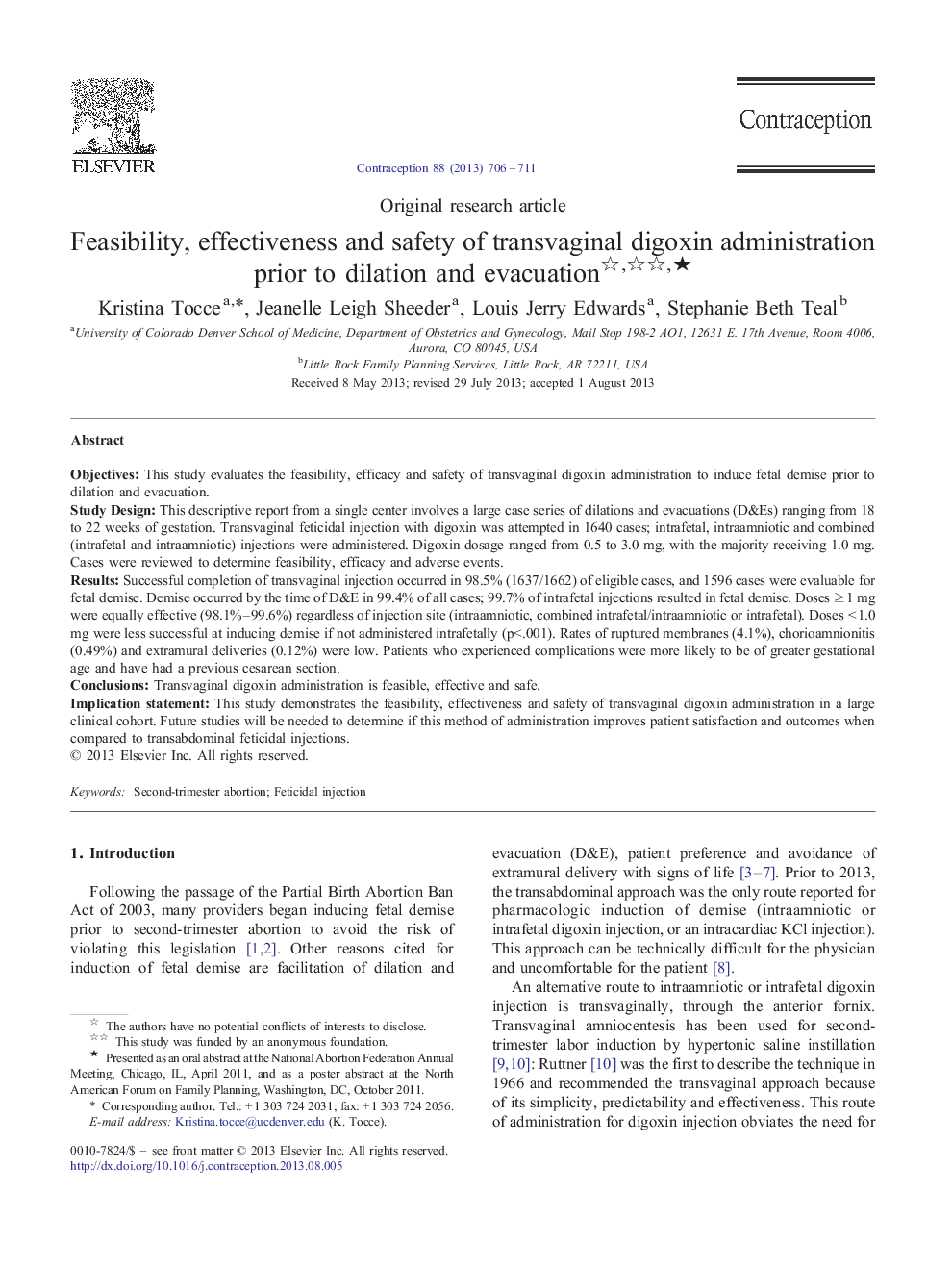| Article ID | Journal | Published Year | Pages | File Type |
|---|---|---|---|---|
| 3913611 | Contraception | 2013 | 6 Pages |
ObjectivesThis study evaluates the feasibility, efficacy and safety of transvaginal digoxin administration to induce fetal demise prior to dilation and evacuation.Study DesignThis descriptive report from a single center involves a large case series of dilations and evacuations (D&Es) ranging from 18 to 22 weeks of gestation. Transvaginal feticidal injection with digoxin was attempted in 1640 cases; intrafetal, intraamniotic and combined (intrafetal and intraamniotic) injections were administered. Digoxin dosage ranged from 0.5 to 3.0 mg, with the majority receiving 1.0 mg. Cases were reviewed to determine feasibility, efficacy and adverse events.ResultsSuccessful completion of transvaginal injection occurred in 98.5% (1637/1662) of eligible cases, and 1596 cases were evaluable for fetal demise. Demise occurred by the time of D&E in 99.4% of all cases; 99.7% of intrafetal injections resulted in fetal demise. Doses ≥ 1 mg were equally effective (98.1%–99.6%) regardless of injection site (intraamniotic, combined intrafetal/intraamniotic or intrafetal). Doses < 1.0 mg were less successful at inducing demise if not administered intrafetally (p<.001). Rates of ruptured membranes (4.1%), chorioamnionitis (0.49%) and extramural deliveries (0.12%) were low. Patients who experienced complications were more likely to be of greater gestational age and have had a previous cesarean section.ConclusionsTransvaginal digoxin administration is feasible, effective and safe.Implication statementThis study demonstrates the feasibility, effectiveness and safety of transvaginal digoxin administration in a large clinical cohort. Future studies will be needed to determine if this method of administration improves patient satisfaction and outcomes when compared to transabdominal feticidal injections.
